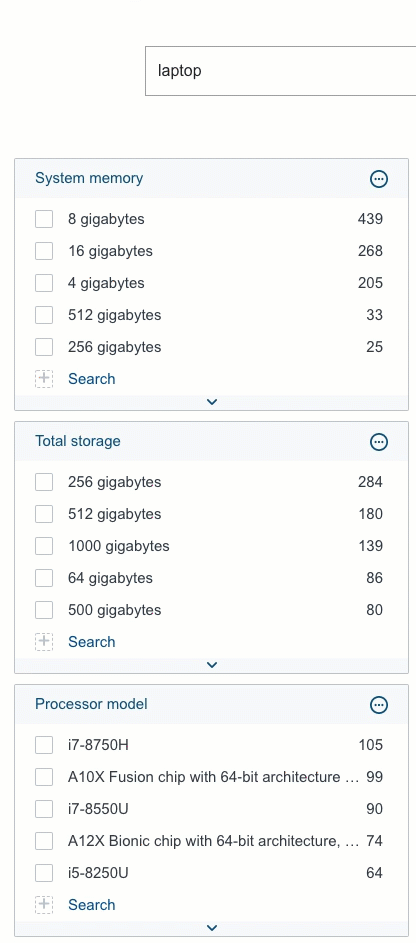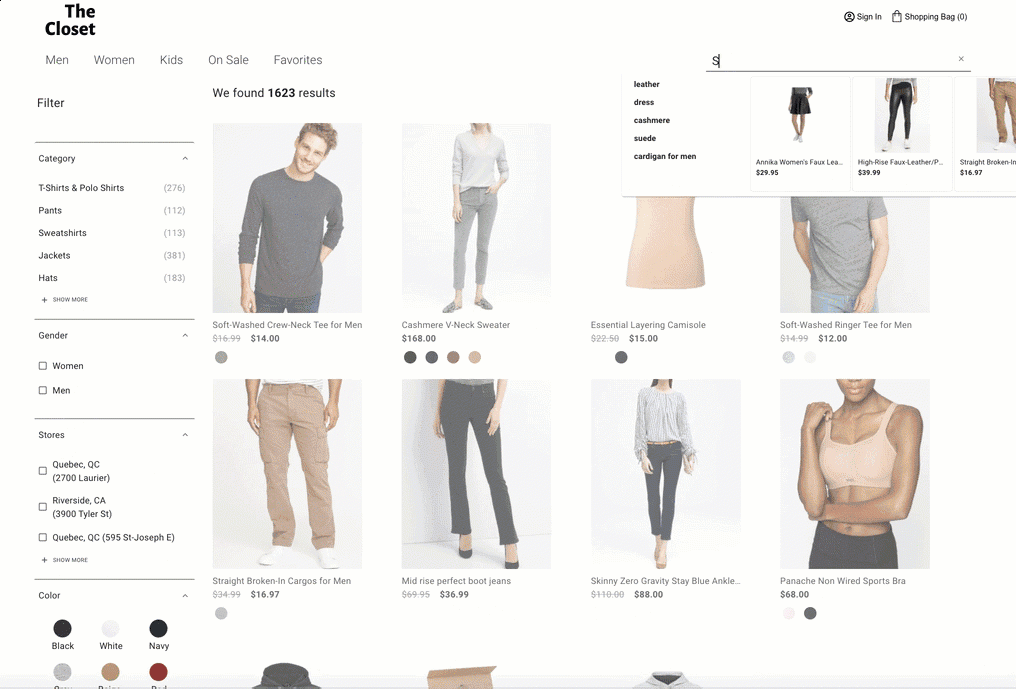About Dynamic Navigation Experience (DNE)
About Dynamic Navigation Experience (DNE)

Coveo Machine Learning (Coveo ML) Dynamic Navigation Experience (DNE) models leverage usage analytics events to pertinently order facets and facet values according to the user query and language. More precisely, DNE models analyze queries and actions performed by previous users (for example, clicked results, facet selections) to make the most relevant facets appear at the top for a given query.
Coveo ML DNE models also reorder facet values within a given facet to make the most popular values appear at the top. To do so, the models use the search events performed by previous users who have selected certain facet values for a specific query.
Furthermore, Coveo ML DNE offers a facet value autoselection feature that improves the user experience by automatically selecting facet values according to user queries.
A Coveo ML DNE model uses its facet value ranking to boost search results. The model uses the most popular facet values for a certain query and applies query ranking expressions (QREs) to boost the search results whose field values match the values of those facets.
Members with the required privileges can create, manage, and deploy a DNE model.
About the Autoselection feature
Since the Coveo JavaScript Search Framework January 2020 release, it’s possible to activate the DNE autoselection feature in your Coveo-powered search interfaces. To use this feature, you only need to specify which facets to apply the feature on when you create your DNE model.
Following a user query, the DNE autoselection feature can automatically select the most relevant facet value from the returned facets. To do so, the feature learns from your end-users behaviors to understand which facet values are the most relevant according to their current browsing task.
For a Coveo-powered clothing commerce interface, a Coveo administrator created a DNE model and chose to enable the autoselection feature for the category and gender facets when configuring the model.
When accessing the commerce interface, a customer searches for a skirt.
Based on the current context and recorded usage analytics data, the model determines that the Skirts and Dresses value of the Category facet and the Women value of the gender facet are relevant enough to be automatically selected and refine the user query.

About the Facet Generator feature
As a complement to your DNE model, the Facet Generator displays the best facets for your search interface. It works right away, without any training, and is ideal for commerce scenarios.
See About the Facet Generator for details.